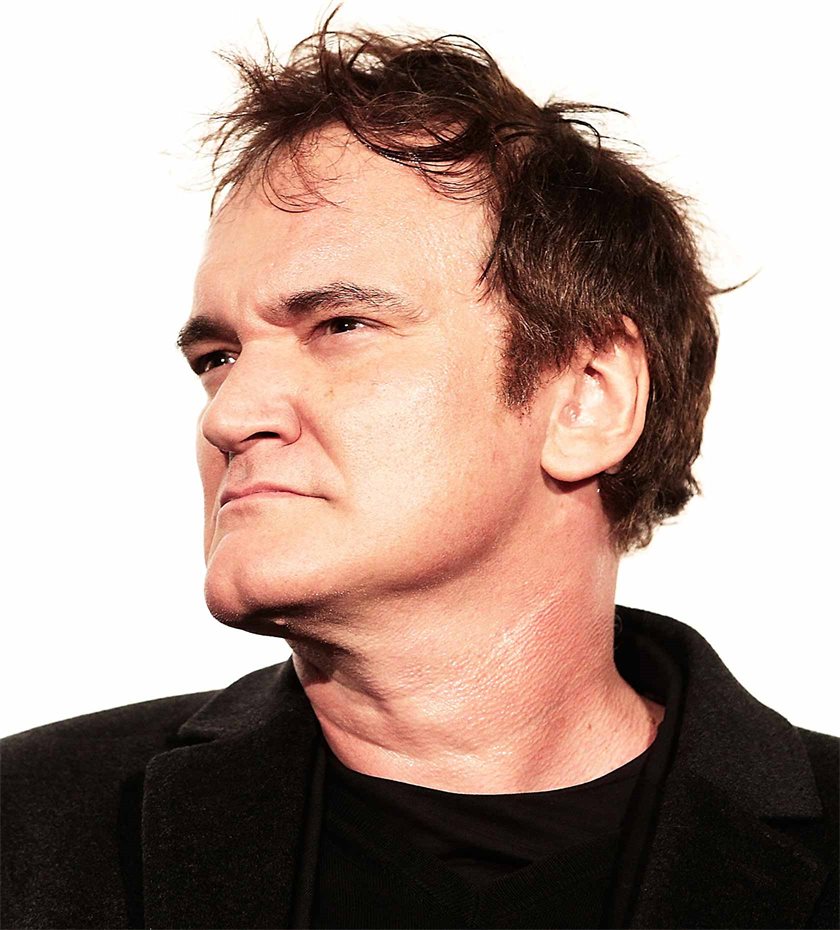Virtuosity, geniality, and raw violence

Quentin Tarantino
Each year, Los Angeles – that is, Hollywood – draws in thousands of young men and women who dream of glamorous careers in the movie business. It goes without saying that next to none has the right amount of talent or luck to make it. This is only one of the reasons why so many find Quentin Tarantino’s narrative, one where he plays the lead himself, interesting. A story about a high school drop-out that leaps for an acting career at James Best Acting School. To no luck. The story turns into a double drop-out.
This would be the start of a not too desirable career in the porn business: He worked shifts selling tickets at the adult cinema, Pussycat Theatre. At night, he worked as the hand of a porn magazine owner, driving around to collect coins from the magazine dispensers. The movies would be his saviour. At least in the beginning. At the age of twenty, he landed a job at a local Manhattan Beach video store, called Video Archives. Working for four dollars an hour, it might, to most, not come across as the hottest job. The bonus was, though, that he could rent as many movies as he wanted for free. For Tarantino, it turned out to be a dream job. If anything sparked the interest of the young Tarantino, it would be movies! In school, he had learned how to skip classes. But at home, he would endlessly record old classics and “B movies”. Working at the video store, all those hours spend cutting classes and recording movies would turn into his advantage.
He already knew a whole lot about movies. Soon, he became very popular amongst the clients. He almost seemed to be a walking encyclopaedia on films, actors, and directors. He could ramble on about the masterpieces of Sergio Leone for hours. But other subjects absorbed him equally. There exist multiple stories about customers, who talked to Quentin Tarantino at Video Archives, and who many years later would watch his movies and recognize an almost one-to-one rendition of the discussions, they had had with him. An example is the discussion about tips that in 1992 would find its way into his film debut Reservoir Dogs.
By all accounts, it cannot have been a very busy store. And together with his colleague, Roger Avery, he would start writing film manuscripts. It turned into a finished piece, called The Open Road, that never made it to the screen. This time, too, Tarantino would save all the best bits to later use. A vast part of the screenplay later turned into the Tony Scott film, True Romance, starring Christian Slater and Patricia Arguette. A slightly psychedelic movie about a cartoon fan, who on his birthday goes to the movies to watch three Sonny Chiba films and meets the woman of his dreams. A film that draws on Tarantino’s own life and dreams.
Coincidences
It turns out to be his gift as a screenwriter that brings Quentin Tarantino to stardom.
After the success of True Romance, Oliver Stone buys Tarantino’s manuscript to the blockbuster Natural Born Killers. Tarantino begins to cash in, but he quickly invests it all in making Reservoir Dogs. It might sound like any old Hollywood story. It is not. Quentin Tarantino had scraped together 30,000 dollars to produce the film with his producer friend, Lawrence Bender, the wife of whom had a drama teacher who knew Harvey Keitel peripherally, who, by way of this twisted association, had gotten his hands on the manuscript. It all resulted in Keitel funding the movie and offering to play the part of Mr. White. Even though the budget grew to 1.5 million dollars, it was, by Hollywood standards, an ultra-low budget film. Even for independent movies. And the actors had to act in their own clothes. The budget could not even cover costumes!
Quentin Tarantino has added something unique to the movie business. That is movies that would turn into trivial glorifications of violence, were they directed by anyone but Tarantino. Instead, he makes them glimmer like artworks. In the beginning, Reservoir Dogs was banned from English cinemas. The reasoning was that torture and violence was used as a means of entertainment. Tarantino has defended his use of violence with these words: “violence is so good. It affects audiences in a big way.” One thing is for sure: If he is to end his career in three year, as he turns sixty, a whole world of film lovers will miss his insistent and often surreal film universes. Hopefully, his promise to keep on creating screenplays will give fans a small amount of piece.